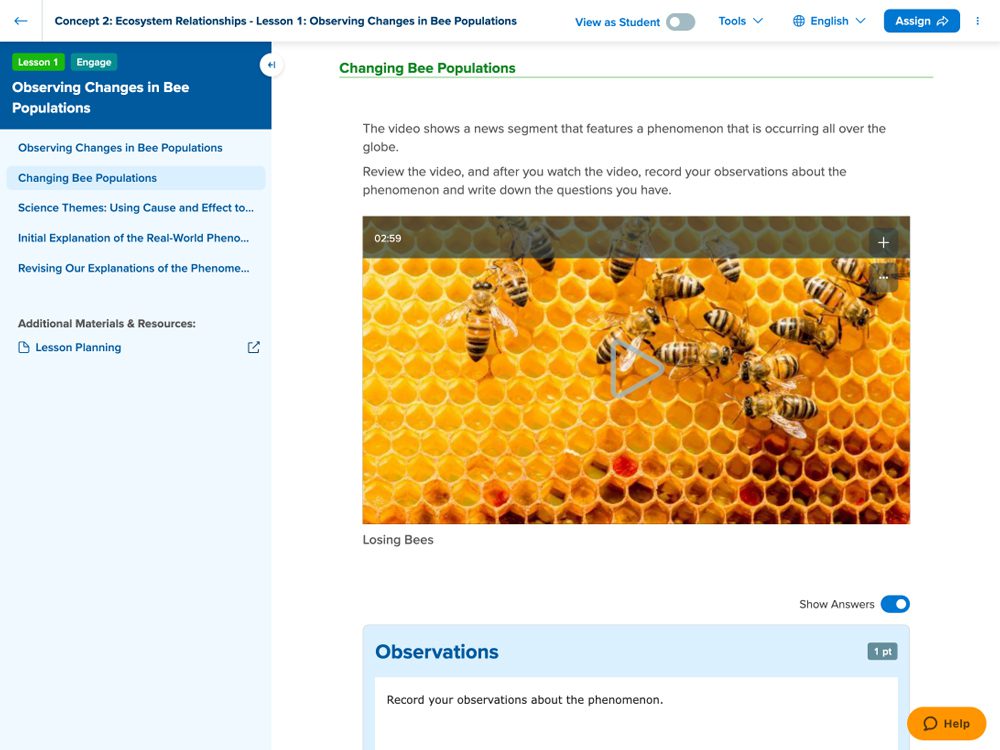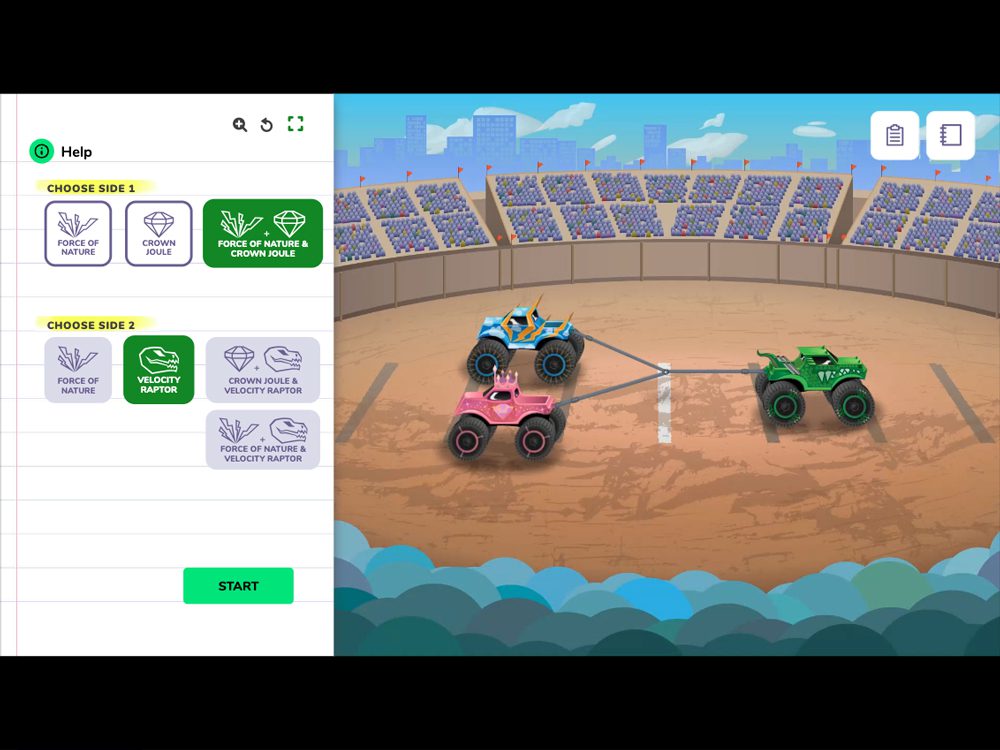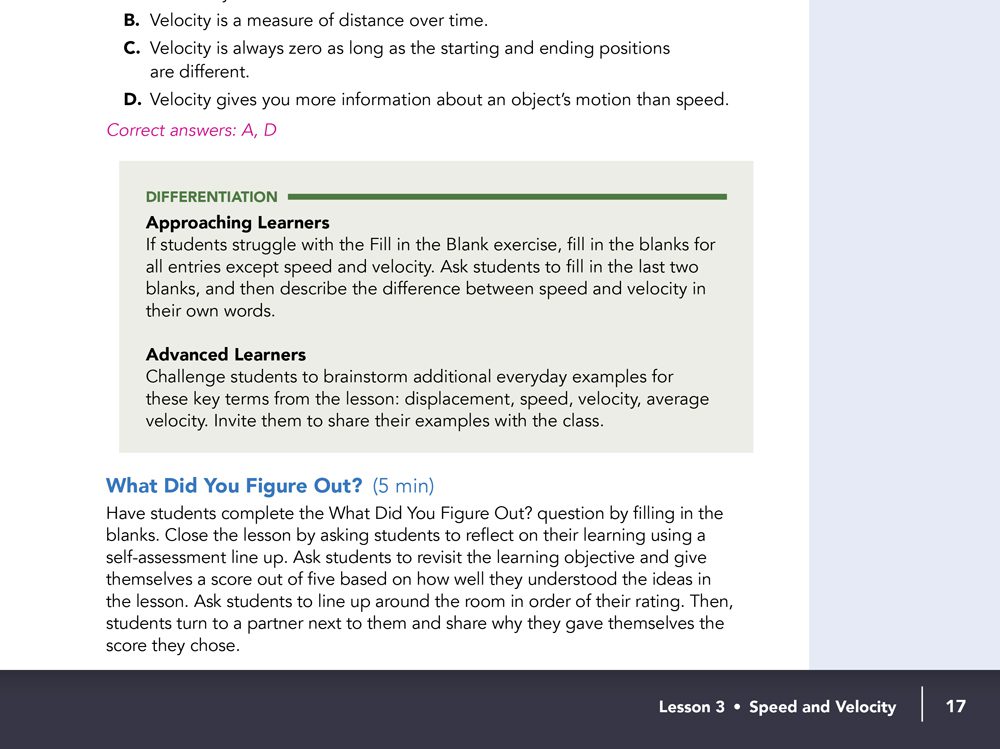The Science Techbook for Texas Middle School curriculum has 100% TEKS and 100% ELPS coverage.

Let’s get started with your review of grades 6-8 and see how easy it is to guide your students into becoming junior scientists and engineers!
Discovery Education’s Science Techbook for Texas is a comprehensive core curriculum designed for Texas teachers and students.
Science Techbook for Texas strategically and systematically integrates the scientific and engineering practices, recurring themes and concepts, and grade-level content as outlined in the TEKS.
Assessments include new STAAR question types: text entry, hot spot, drag and drop, multipart, multi-select, and short constructed response.
Easily meet lab and activity requirements with engaging hands-on activities and interactives that fit into standard lessons.
Middle school lessons are ready-to-teach with point-of-use instructor support and flexible options.
Science Techbook for Texas provides a complete science curriculum in English and Spanish.
Science phenomena and activities feature Texas locations so students can truly see themselves in the program.
Science Techbook for Texas is a hands-on and immersive active learning program. Watch students transform into junior scientists and engineers through engaging real-world lessons.

Students are motivated to understand the science content because it’s exciting and relevant.






Students build conceptual understanding through hands-on activities and interactives in every Concept.






Embedded strategies for differentiated instruction support accessible science instruction.



Make the most of your time! Science Techbook for Texas includes intuitive digital tools that personalize the student experience and instructor resources that streamline processes.
In each Concept, students are presented with a real-world phenomenon. The Engage lessons are carefully crafted to solicit student curiosity and encourage them to ask questions related to the core concepts for the TEKS associated with the concept.
Using the CER framework, students synthesize the evidence gathered while completing hands-on activities, interactives, and literacy activities in the Explore lessons. They evaluate the validity of this evidence to answer their original questions about the phenomenon from Engage and revise their initial claims and models. Rubrics and the ability to provide personal feedback to their peers help students improve the rigor of their explanations over time.
In Elaborate lessons, students expand on the scientific ideas within each Concept by making connections and applying ideas to real-world experiences through STEM projects and STEM careers. Now that students have acted like scientists and engineers, they can learn how professional scientists and engineers study the same evidence they uncover in your classroom.
The embedded formative assessment prompts throughout the 6-8 program are STAAR assessment types. Additionally, in the Evaluate lessons, you will find Concept Summative Assessments. The question types in these assessments also mirror the look and feel of STARR-based item types and include all of the new STAAR question types: text entry, hot spot, drag and drop, multipart, multi-select, short constructed response.
Many assessments are automatically graded, and instructors can view individual student and class performance in the Concept Assessment Results section. Constructed response questions include rubrics for additional feedback.
At the close of each lesson, students complete formative assessments called “What Did You Figure Out?” and “Check For Understanding.” Available in print and digital modalities, these assessments provide a quick opportunity for students to demonstrate their understanding.
Phenomenon Check-Ins serve as another formative check for understanding that allows students to reflect on their sensemaking. As students generate and analyze data, these artifacts allow teachers to monitor student progress. Many formative assessments are auto-graded with built-in scaffolded supports for instant feedback.
For more information on assessments, click here.
Yes! The curriculum not only includes misconceptions relevant to the core scientific ideas found in each Concept but also provides those misconceptions for teachers at the point in Explore lessons that are the critical place in the 5E learning cycle where teachers can address the misconception. Each teacher misconception feature includes an explanation and practical strategy to support students in overcoming barriers to conceptual development.